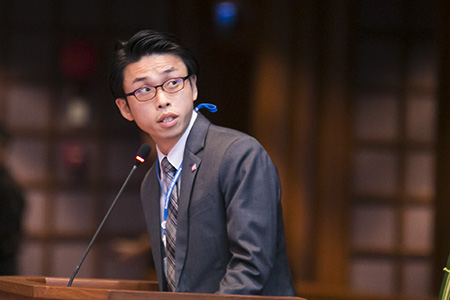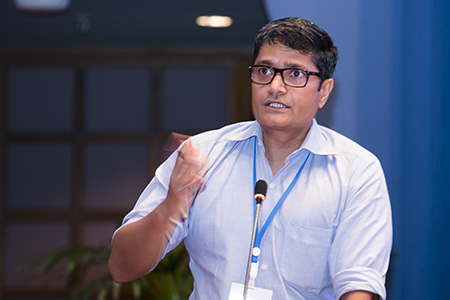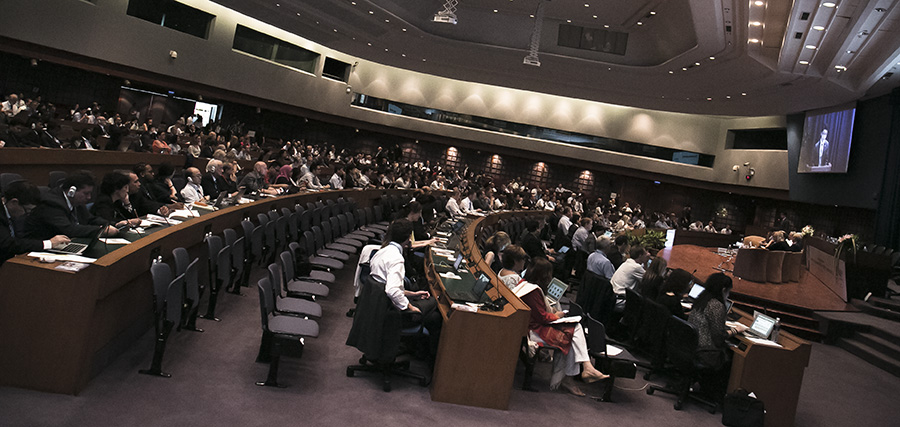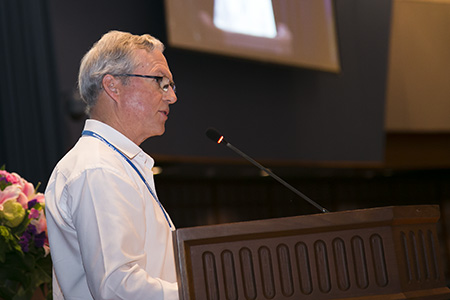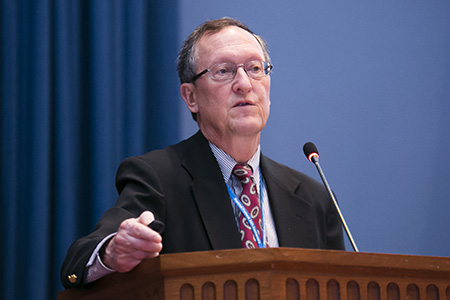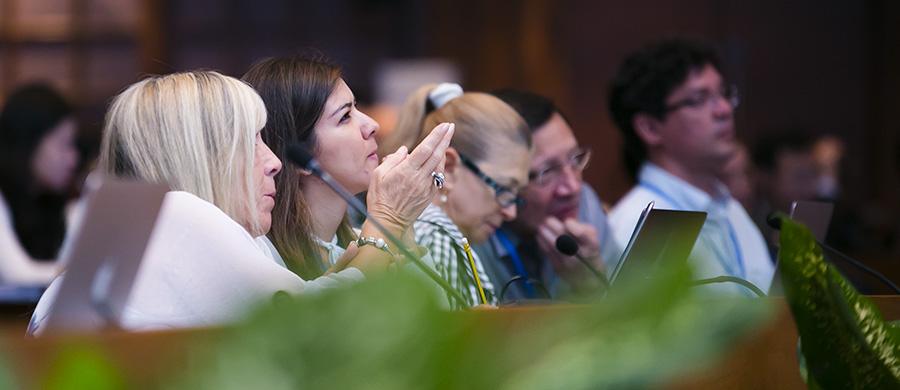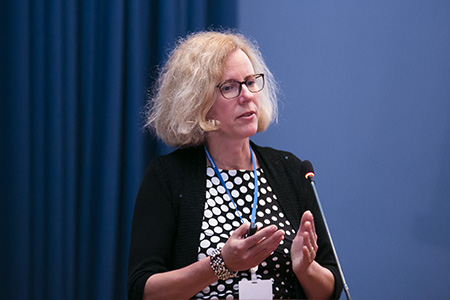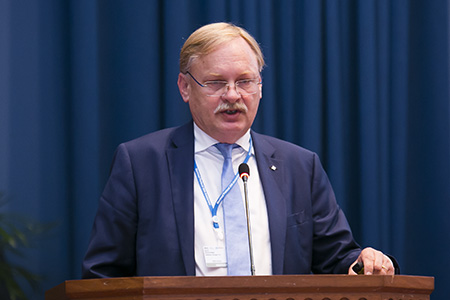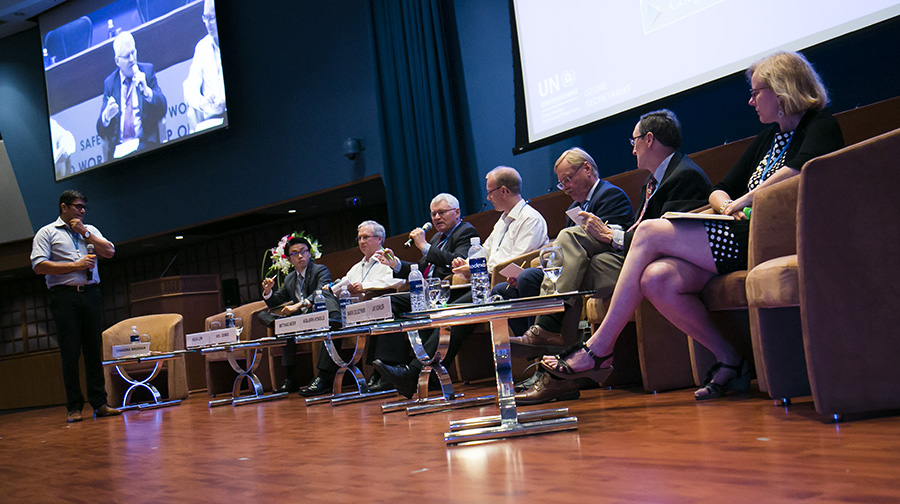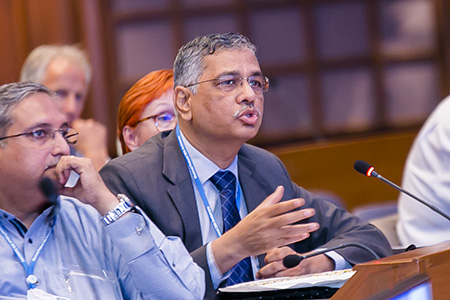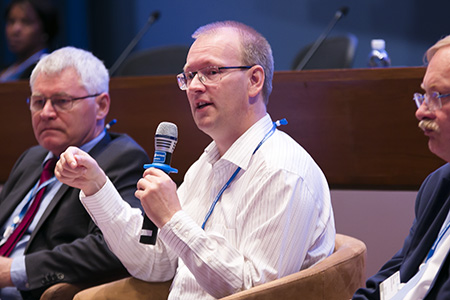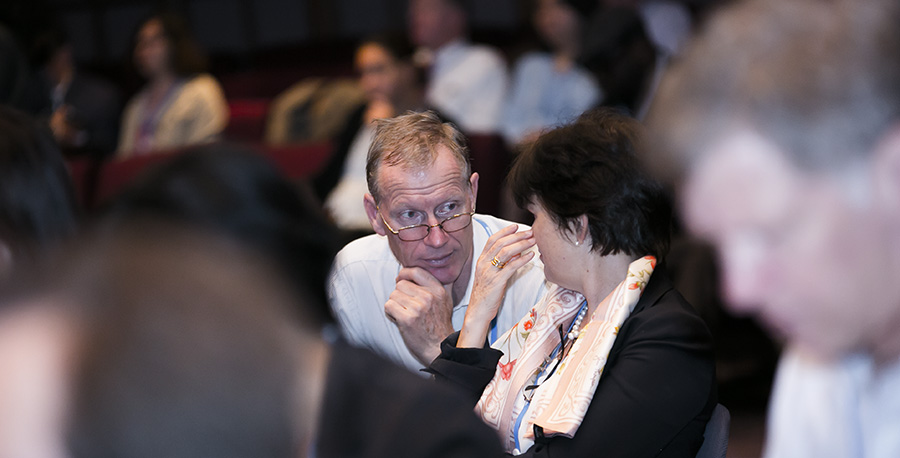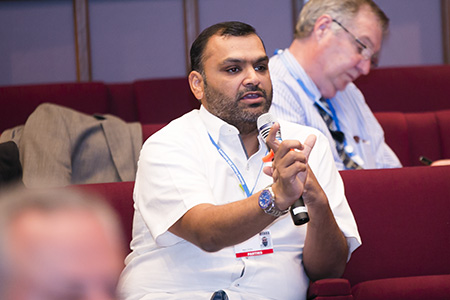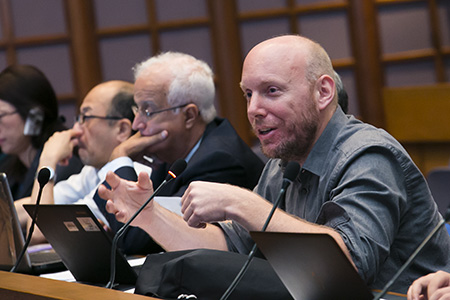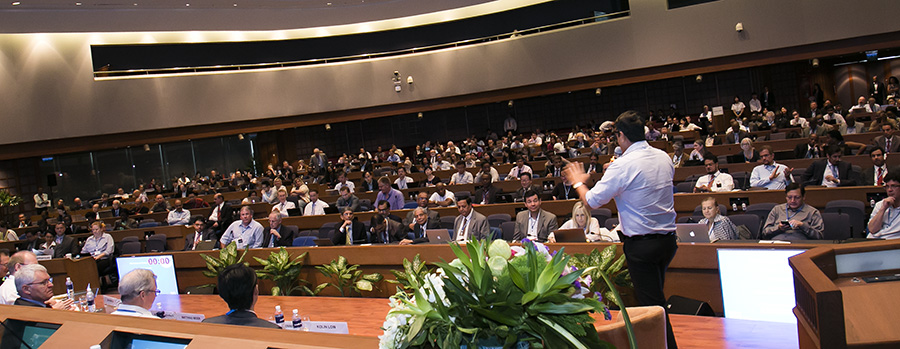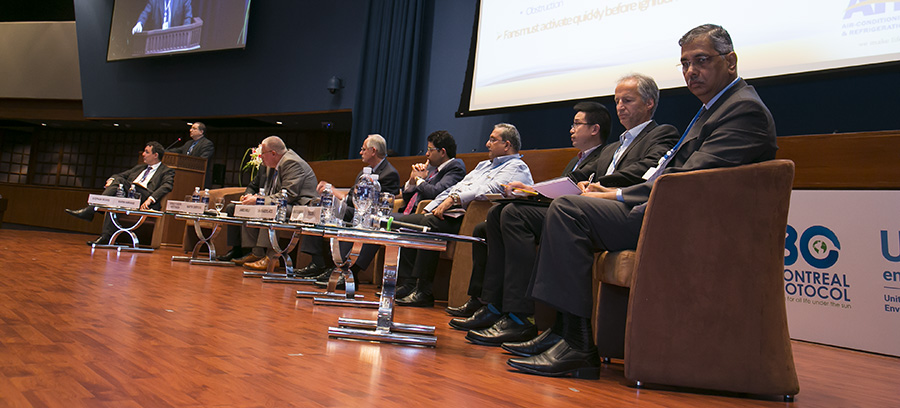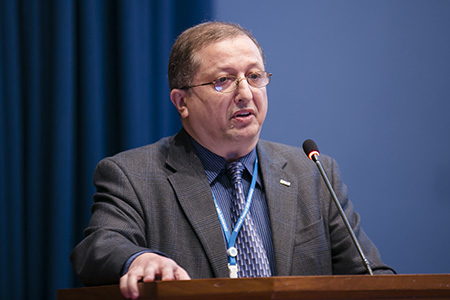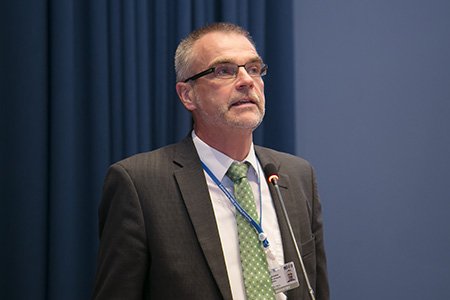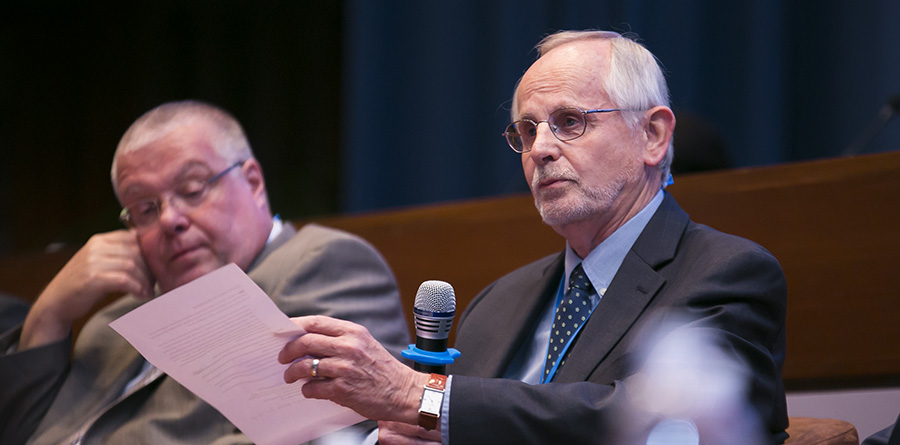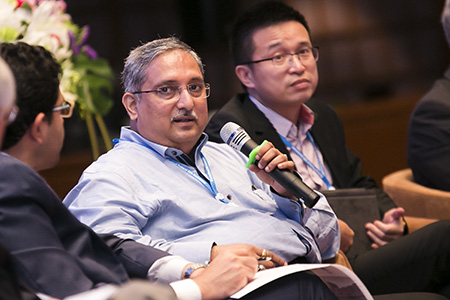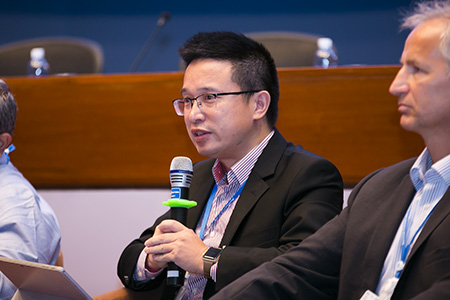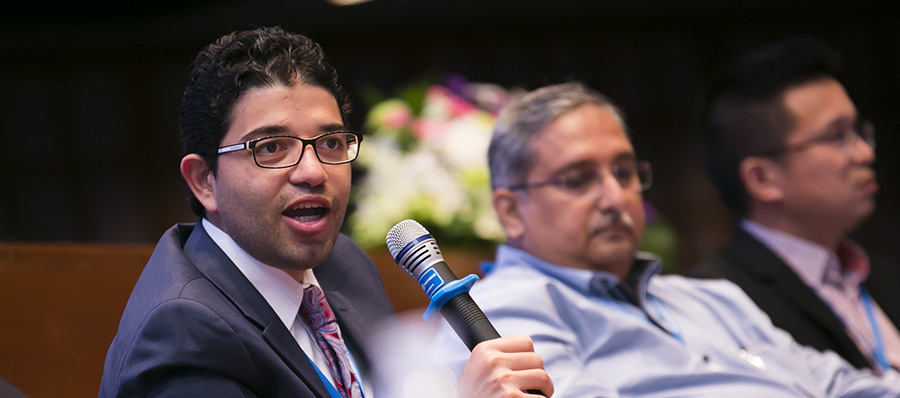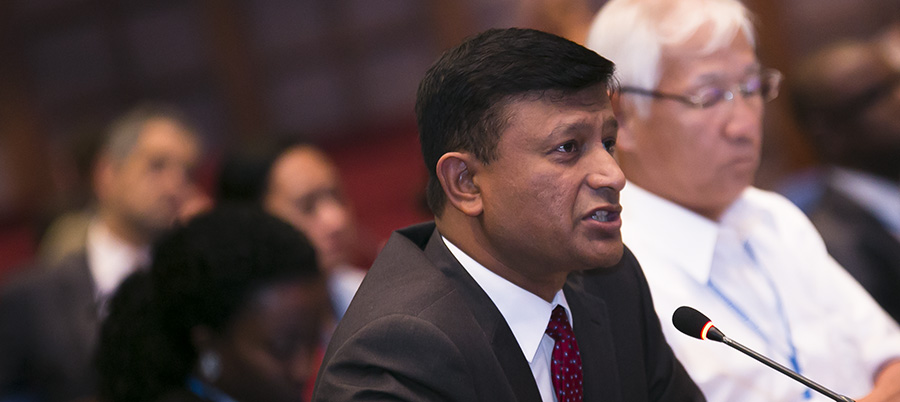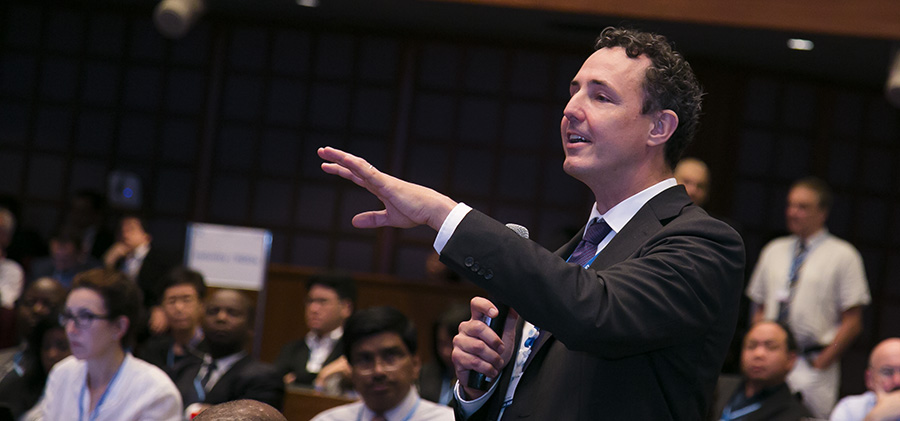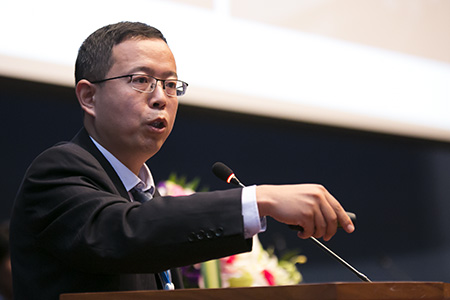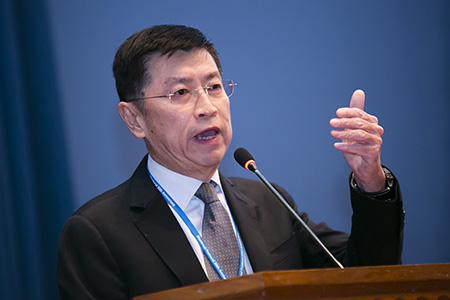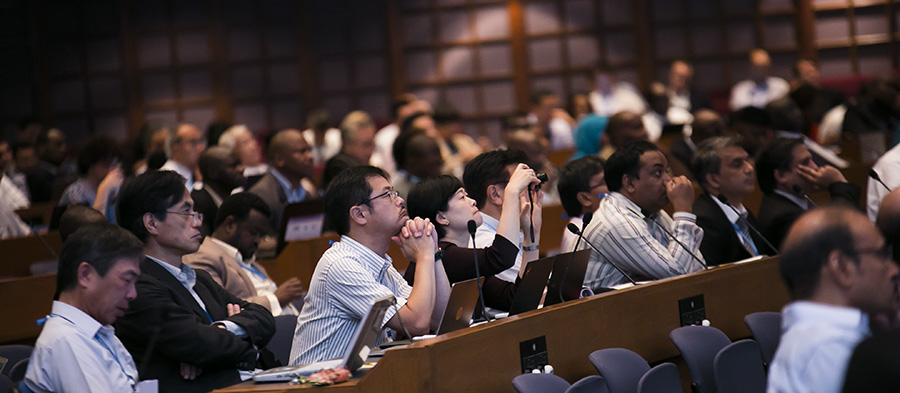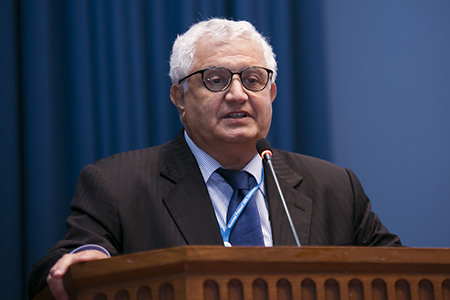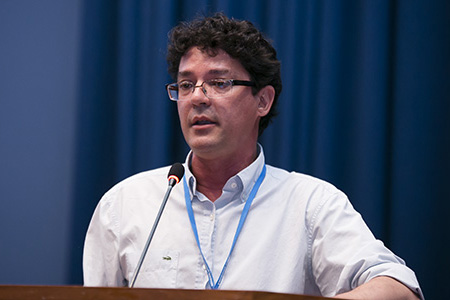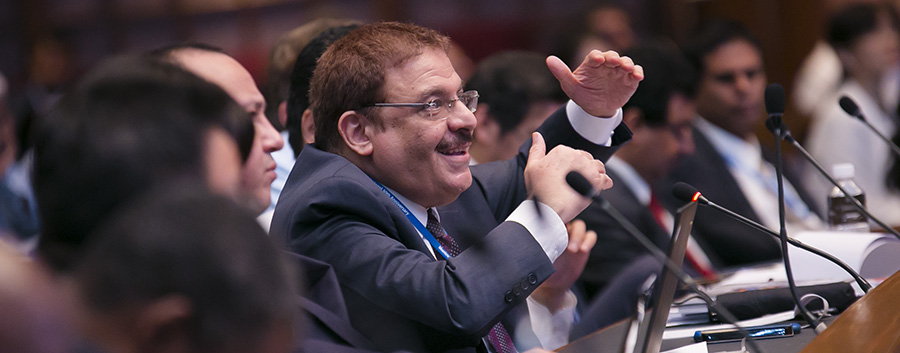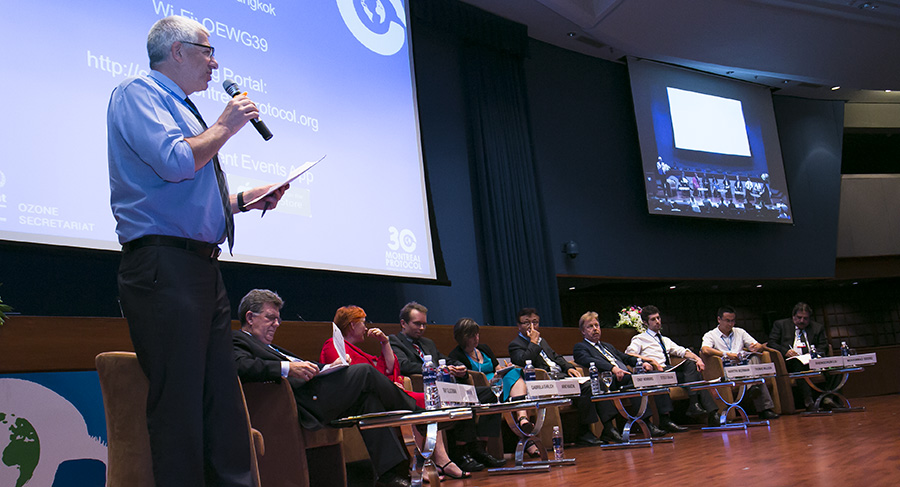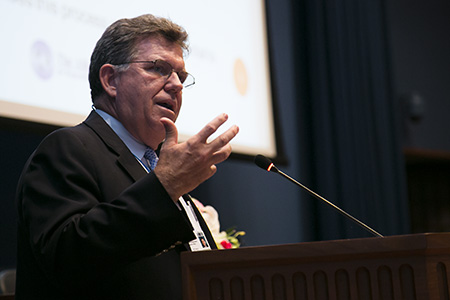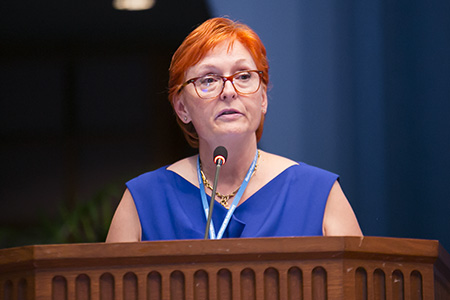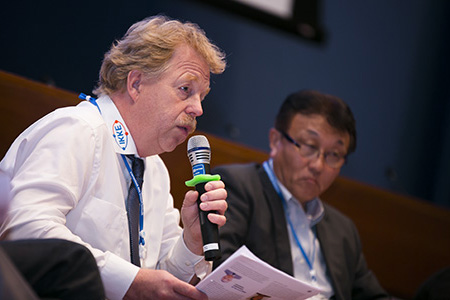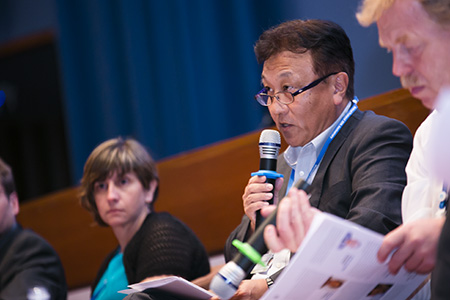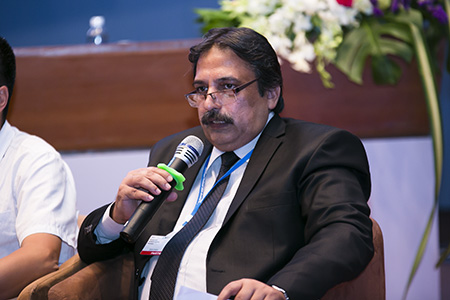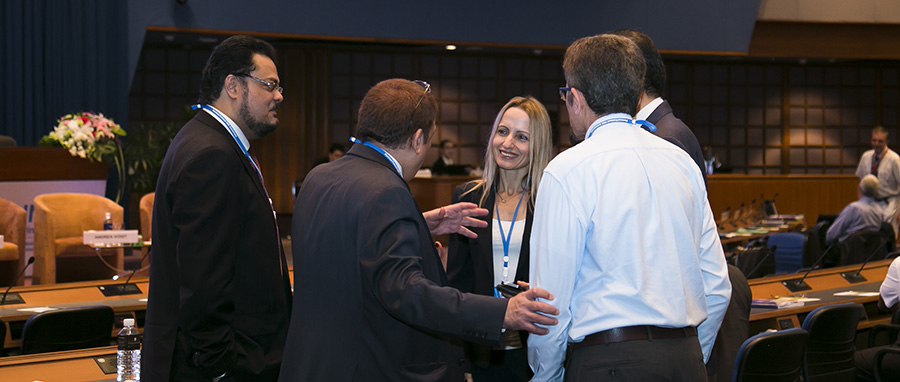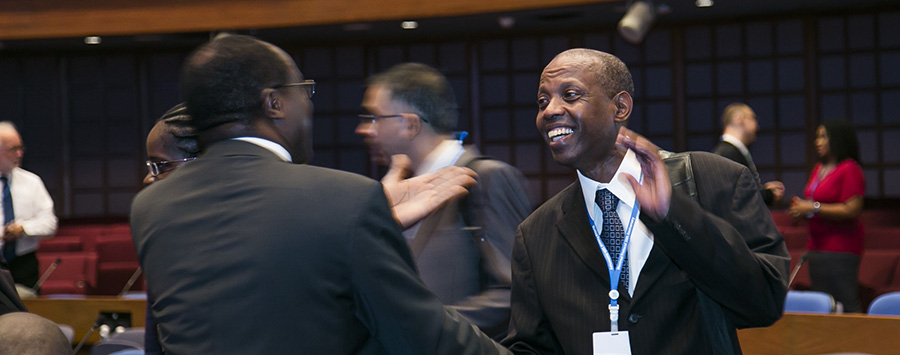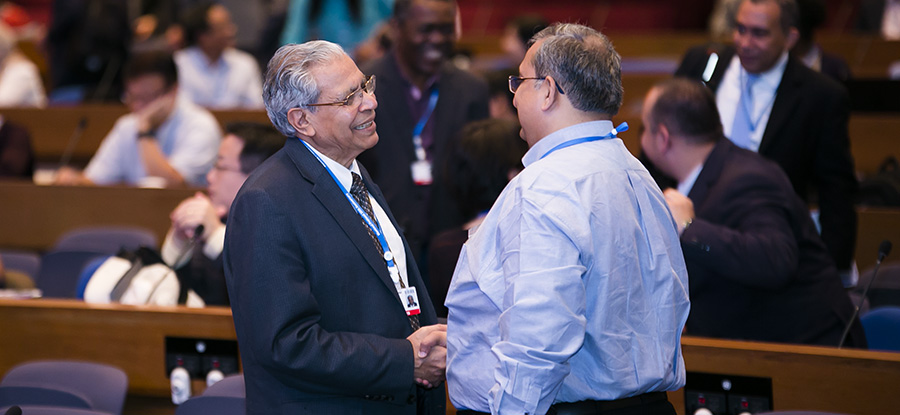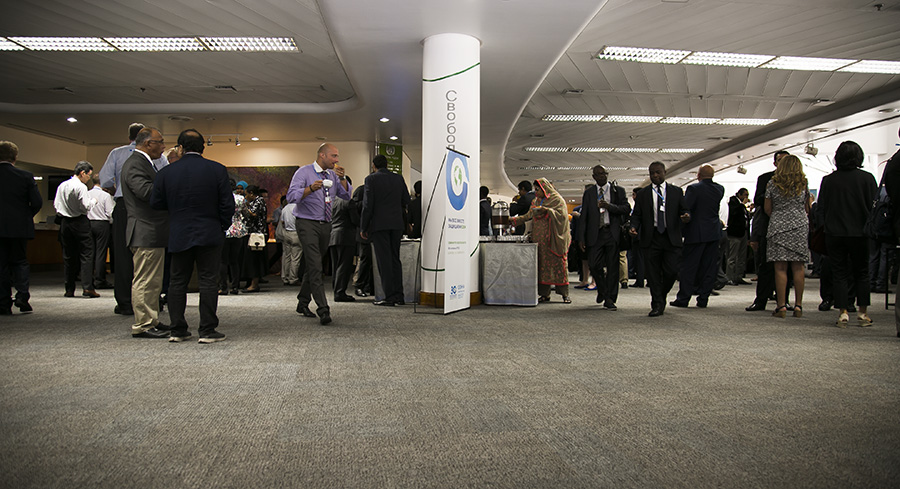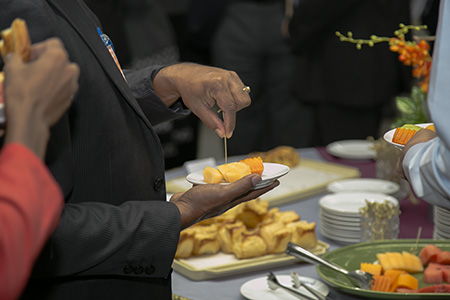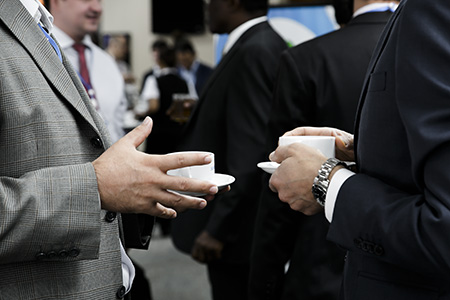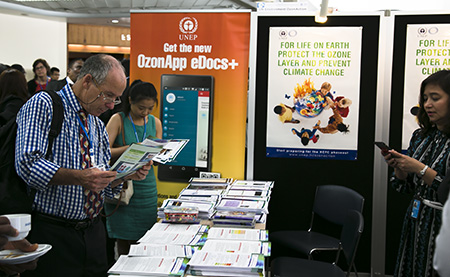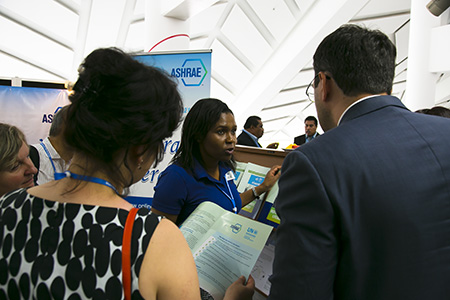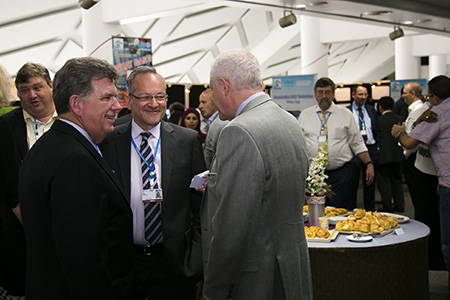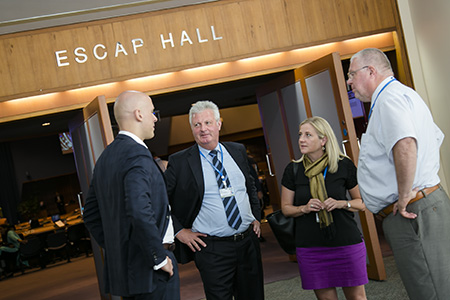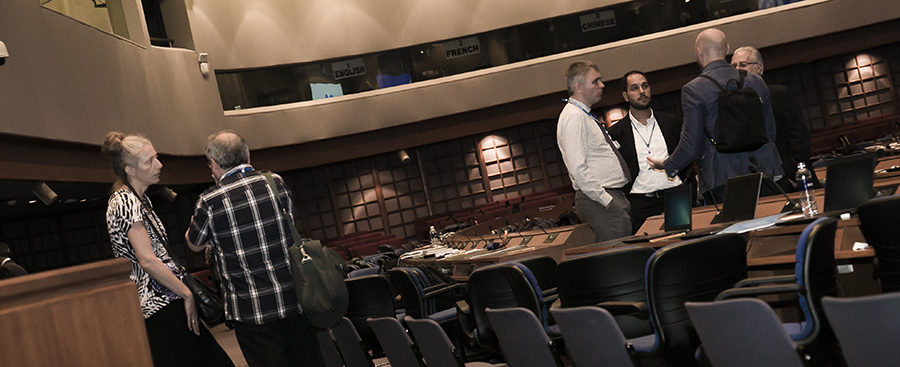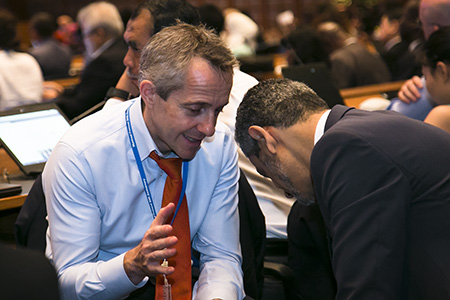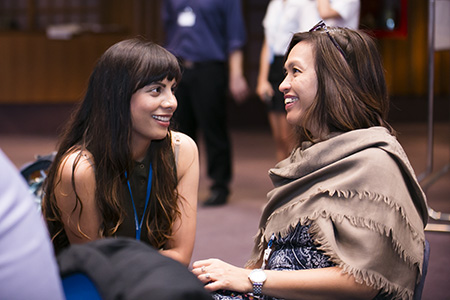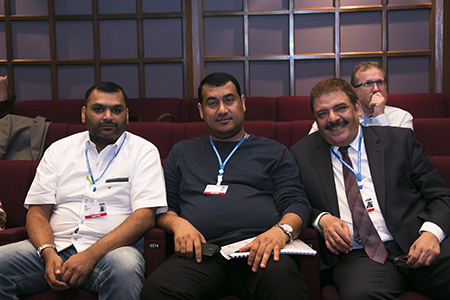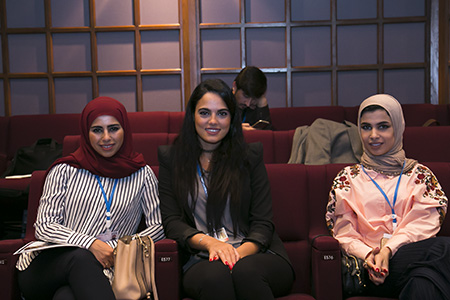Summary
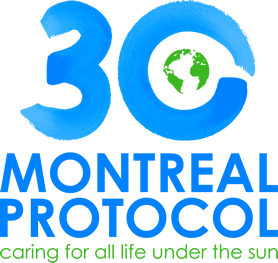
The one-day Workshop on Safety Standards Relevant to the Safe Use of Low Global Warming Potential (GWP) Alternatives to Hydrofluorocarbons (HFCs) convened on Monday, 10 July 2017, at the United Nations Conference Centre (UNCC) in Bangkok, Thailand. The Workshop was mandated by the 28th Meeting of the Parties (MOP 28) to the Montreal Protocol, held in Kigali, Rwanda, in October 2016. Its conclusions will be presented to the 39th Open-Ended Working Group (OEWG 39), which will meet in Bangkok after the workshop from 11-14 July 2017, for further consideration and discussion by the parties.
Workshop participants were welcomed by Tina Birmpili, Executive Secretary, Ozone Secretariat, who outlined the fundamental questions to be addressed by the workshop.
The workshop was divided into four sessions: an overview of the international safety standards of greatest importance to the Protocol and its Kigali Amendment and the process for developing and revising the standards; identifying limitations to the uptake of lower GWP alternatives that could be addressed with changes to existing international safety standards; the relationship between international and national safety standards; and how stakeholders can work together to maximize the opportunities for the safe use of lower GWP alternatives.
At the end of the workshop, the rapporteurs for each session summarized key messages from their respective session. The set of key messages will be forwarded to OEWG 39 for its consideration.
IISD Reporting Services, through its Earth Negotiations Bulletin (ENB) Meeting Coverage, has provided daily digital coverage and a summary and analysis report from the Workshop on the Safety Standards Relevant to the Safe Use of Low-GWP Alternatives to HFCs and OEWG 39. The summary and analysis report is now available in HTML and PDF.
Photos by IISD/ENB | Sean Wu
For photo reprint permissions, please follow instructions at our Attribution Regulations for Meeting Photo Usage Page
Safety Standards Workshop: Morning Session
Tina Birmpili, Executive Secretary, Ozone Secretariat
Kolin Low, International Organisation for Standardisation (ISO)
Session I Facilitator Chandra Bhushan, Centre for Science and Environment, India
Neil Dennis, AECOM, Australia
Jay Kohler, Johnson Controls, US
Andrea Voigt, European Partnership for Energy and the Environment (EPEE)
Marek Zgiczynski, Embraco, Italy
View of the dais
Jitendra Bhambure, Refrigeration and Air-Conditioning Manufacturers Association (RAMA), India
Asbjørn Vonsild, Vonsild Consulting, Denmark
Yaqoub Al-Matouq, Kuwait
Daniel Henry Colbourne, Suscool Limited, UK
View of the dais
Karim Amrane, Air-Conditioning Heating and Refrigeration Institute (AHRI), US
Torben Funder-Kristensen, Danfoss, Denmark
James Wolf, Ingersoll Rand, US
Abhijit Acharekar, Godrej, India
Ting-Xun Li, Sun Yat-sen University, China
Omar Abdelaziz, Oak Ridge National Laboratory, US
Iftikhar-ul-Hassan Gilani, Pakistan
Facilitator Stephan Sicars, United Nations Industrial Development Organization (UNIDO)
Safety Standards Workshop: Afternoon Session
Yan-Wei Dou, China Household Electrical Appliances Association (CHEAA)
Aroon Eamsureya, Federation of Thai Industries, Thailand
Alaa Olama, Olama Consultants, Egypt
Tomaz Cleto, Yawatz Engenharia Ltda, Brazil
Taha Mohammed Zatari, Saudi Arabia
View of dais
Kevin Fay, Executive Director, Alliance for Responsible Atmospheric Policy
Gabriela Ehrlich, International Electrotechnical Commission (IEC)
Karsten Beermann, IKKE, Germany
Tetsuji Okada, Japan Refrigeration and Air-Conditioning Industry Association (JRAIA)
Miruza Mohamed, Maldives
Jayantha Sirikumara, Sri Lanka
Mohammad Khalid Siddiq, Pakistan Standards and Quality Control Authority

